MS patients face much greater risk of hospitalization, death from COVID-19, despite high rates of vaccination
Powered by WPeMatico
Powered by WPeMatico

New Delhi: Delhi Chief Minister Arvind Kejriwal has come under scrutiny for allegedly delaying action on a file recommending the removal of the principal of Dr Baba Saheb Ambedkar Medical College and Hospital, Delhi where female MBBS students faced sexual harassment, according to Raj Niwas officials on Thursday.
Delhi Lt Governor V K Saxena had sent a note in the matter to Kejriwal before his arrest on March 21, officials said.
In the note, Saxena accused Kejriwal of inaction, stating that neither transfer nor vigilance action could proceed due to the Chief Minister’s lack of response.
Delhi Health Minister Saurabh Bharadwaj retaliated, claiming that Saxena had taken actions against officers previously without consulting the Chief Minister.
Medical Dialogues team recently reported that days after 13 female MBBS students of Dr Baba Saheb Ambedkar Medical College and Hospital, Delhi accused an Assistant Professor of Pharmacology of sexual harassment, the Vigilance department has asked the Health department to send a proposal for initiating disciplinary action against the accused.
According to PTI, In a note to LG on March 20, Bharadwaj had demanded the immediate removal of the principal of the state-run medical college, alleging that he was uncooperative with the victims and that he discouraged/demotivated them from pursuing the case further.
Saxena has already directed the Delhi Police to expedite criminal proceedings and also directed the chief secretary to expedite disciplinary proceedings in the case.
“I find it pertinent to highlight that the Hon’ble Health Minister, in both the current note and a previous correspondence to the Chief Secretary, has requested the immediate transfer of the incumbent principal and the Head of the Department of Pharmacology.
“The irony lies in the fact that although the Hon’ble Health Minister has made a request for the transfer of the Principal of … the file for his transfer has been held up by you, as the chairman of NCCSA, since February 14, 2024. Despite reminders from the Member Secretary of NCCSA, the proposal is still pending for your recommendations on the matter,” read LG’s note.
Kejriwal is the chairman of NCCSA. He was arrested on March 21.
Bharadwaj further clarified that the file in question, which Saxena referred to, concerned the transfer of 17 medical directors and medical superintendents of different hospitals, with the principal’s name included. He insisted that it was a routine matter and did not pertain directly to the sexual harassment case.
“It was a routine file. There was no mention of the sexual harassment case,” the minister said.
On January 31, a professor at the medical college made “obscene” remarks to two MBBS students and tried to inappropriately touch them, news agency PTI reported.
The aggrieved students filed their complaints at the principal’s office on February 1.
“After lodging the complaint, the students had hoped that perhaps some action would be taken in this matter. This case was also referred to the Internal Complaints Committee (ICC), but days passed and no action was taken,” he said. Instead of taking action, the principal and other hospital officials exerted pressure on the students to withdraw their complaints, he charged.
The students then approached police and FIRs were registered on February 22. “I learned about this case through social media on March 18. I immediately called those two students for a meeting. They, along with their seniors and a warden, came to my office and explained the whole incident in detail.
“After listening to the students, when I spoke to the principal of the medical college, he seemed to protect the guilty professor and instead started accusing the students,” the minister said.
Bharadwaj said he wrote a letter to the chief secretary the same day, asking why he had not received the report of the ICC, formed in early February, in the case.
Bharadwaj said a doctor or any other health officer or employee is transferred from one place to another using the “detailment” procedure, and there is no need for NCCSA approval for this.
He also said that the health secretary has the power to use his power to transfer any officer or employee of the health department from one hospital to another.
“I also wrote to the LG that when the police can complete their report within so many days, then why is the ICC taking so long to complete its investigation report?” he said.
He also raised questions regarding the delay in the ICC’s investigation report and revealed that the committee had reportedly cleared the accused.
“I urge the LG that the health secretary has the authority, you can immediately detail those guilty officials. I request you to take immediate action against these guilty officials and detail them as soon as possible,” he said.
Powered by WPeMatico
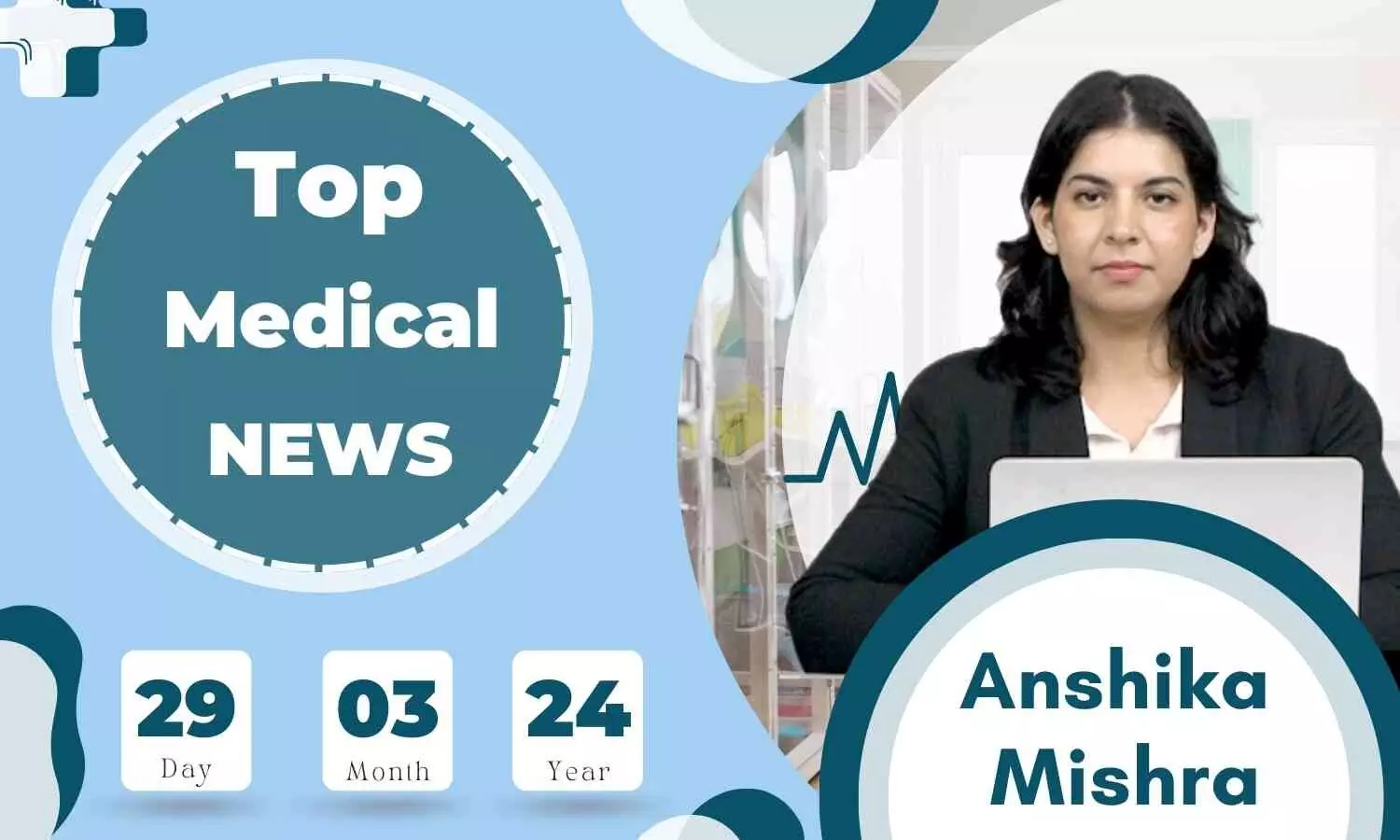
Here are the top medical news for the day:
Ketogenic diet could potentially delay the onset of memory loss, finds study
A new study published in the journal Nature Communications Biology utilized a mouse model to reveal that a ketogenic (keto) diet postponed the onset of Alzheimer’s disease (AD) and is credited with a sevenfold increase in the mice’s levels of the beta-hydroxybutyrate (BHB) molecule.
Alzheimer’s disease, a progressive neurodegenerative disorder, involves cognitive deficits and synaptic dysfunction. Beta-hydroxybutyrate (BHB) has shown promise in delaying mild cognitive dementia onset. This molecule, produced during fat metabolism in humans, aids energy transfer from the liver when glucose is low. Research has suggested that BHB has anti-inflammatory effects on brain cells inflamed by beta-amyloid plaques.
In the study, researchers involved genetically modified APP/PS1 mice who express a mouse/human amyloid precursor protein as well as a mutant human presenilin 1 gene. Both target central nervous system neurons. The mice were bred. Their female and male offspring lived in a 12-hour light and 12-hour dark environment, with up to four mice in a cage eating a standard mouse chow diet for six months. At that age, they were assigned to weight-balanced groups, with each mouse living in a separate enclosure for the remainder of the study, so researchers could control their consumption of food. Mice were given either a keto diet or a carbohydrate-rich standard diet — both diets provided the same number of calories.
The results showed that female mice had higher levels of BHB in their bodies than males, as well as brain enzymes known to support memory. At the same time, male mice who were switched to a late-midlife keto diet exhibited improved spatial memory.
The findings suggested that the ketogenic diet, Ketone supplements, and BHB formulation are most likely to have an impact on this earliest phase of human Alzheimer’s disease, and could potentially extend/rescue this phase in humans, as KD/BHB appears to rescue in APP/PS1 mice.
“While the new study presents intriguing findings, more research is needed to understand the impacts and outcomes of a ketogenic diet on people living with, or at risk for, Alzheimer’s,” said Dr. Stefania Forner Ph.D., Alzheimer’s Association director of medical and scientific relations.
Reference: Jacopo Di Lucente, Giuseppe Persico, Zeyu Zhou, Lee-Way Jin, Jon J. Ramsey, Jennifer M. Rutkowsky, Claire M. Montgomery, Alexey Tomilov, Kyoungmi Kim, Marco Giorgio, Izumi Maezawa & Gino A. Cortopassi; Ketogenic diet and BHB rescue the fall of long-term potentiation in an Alzheimer’s mouse model and stimulates synaptic plasticity pathway enzymes; Journal: Nature Communications Biology
People at higher genetic risk of obesity require increased workout intensity: Study
According to a study conducted at Vanderbilt University Medical Center (VUMC) and published in JAMA Network Open, individuals with a higher genetic risk of obesity need to work out harder than those of moderate or low genetic risk to avoid becoming obese.
Individuals with a higher genetic predisposition to obesity may find that they need to put in more effort during workouts to achieve similar results because genetic factors can influence their metabolism, fat storage, and energy expenditure, making it more challenging to maintain a healthy weight through exercise alone.
“Physical activity guidelines do not account for individual differences. Genetic background contributes to the amount of physical activity needed to mitigate obesity. The higher the genetic risk, the more steps needed per day.” said senior author Douglas Ruderfer, PhD, associate professor of Medicine, Division of Genetic Medicine, and director of the Center for Digital Genomic Medicine at VUMC.
The study included 3,124 middle-aged participants without obesity who owned a Fitbit device and walked an average of 8,326 steps per day for a median of more than 5 years. The data revealed that the incidence of obesity over the study period increased from 13% to 43% in the lowest and highest polygenic risk score groups. Individuals with a polygenic risk score in the 75th percentile were required to walk an average of 2,280 more steps per day (a total of 11,020 steps per day) than those in the 50th percentile to have a comparable risk of obesity. People with a baseline BMI of 22, 24, 26 and 28 who were in the 75th percentile of polygenic risk score were required to walk an additional 3,460, 4,430, 5,380 and 6,350 steps per day, respectively, to have a comparable risk of obesity to persons in the 25th percentile.
“I think it is intuitive that individuals who have a higher genetic risk of obesity might need to have more physical activity to reduce that risk, but what is new and important from this study is that we were able to put a number on the amount of activity needed to reduce the risk,” said lead author Evan Brittain, MD, associate professor of Medicine in the Division of Cardiovascular Medicine at VUMC and lead investigator in Digital Health for the All of Us Research Program Data and Research Center. “We would like to test whether knowledge of one’s genetic risk for obesity actually has an impact on their behaviour. I think these findings could be empowering for patients because the current physical activity guidelines take a one-size-fits-all approach, and what we learned is that depending on your genetic risk, the guidelines may underestimate the amount of activity needed to reduce your risk of obesity.”
Reference: Physical Activity and Incident Obesity Across the Spectrum of Obesity Genetic Risk; Journal: JAMA Network Open
Could Delirium be a strong factor for dementia?
A study published in the journal The BMJ found that delirium is a strong risk factor for dementia and death among older people and has a strong independent effect in this clinical population.
Delirium is a sudden change in a person’s usual mental state. Symptoms include agitation, confusion or being unable to stay focused when awake. Delirium is much more common in hospital patients and older people. Previous observational studies have suggested an association between delirium and subsequent dementia, but the relationship remains unclear.
For the study, researchers in Australia analysed data from 626,467 patients aged 65 years and older with no dementia diagnosis who were admitted to hospitals between January 2009 and December 2014. Of these patients, 55,211 had at least one recorded episode of delirium and were matched to another 55,211 patients without delirium by age, sex, frailty, reason for being in hospital, length of stay in hospital and length of stay in the intensive care unit. These 110,422 patients (average age 83) were then followed up for five years to see how many of them were diagnosed with dementia. Collectively, 58% of patients died and 17% had a newly reported dementia diagnosis over the follow-up period.
The results revealed that patients with delirium had a 39% higher risk of death and three times the risk of being diagnosed with dementia than patients without delirium. The relationship between delirium and dementia was stronger in men than women and each additional episode of delirium was associated with a 20% increased risk of developing dementia (a dose-response relationship).
The researchers discovered that among hospital patients with at least one episode of delirium, the risk of receiving a new dementia diagnosis was three times higher than for patients without delirium and each additional episode of delirium increased that risk by 20%.
“While our results are consistent with the hypothesis that delirium plays a causative part in dementia, they are not conclusive owing to the fundamental limitations of observational studies in determining causality. Nevertheless, the results of this study provide valuable insights because prospective randomised controlled trials are unlikely to be conducted,” concluded the researchers.
Reference: Emily H Gordon, senior lecturer, David D Ward, research fellow, Hao Xiong, research fellow, Shlomo Berkovsky, professor of medical artificial intelligence, Ruth E Hubbard, professor of geriatric medicine; Delirium and incident dementia in hospital patients in New South Wales, Australia: retrospective cohort study; Journal: The BMJ; DOI: 10.1136/bmj-2023-077634
Powered by WPeMatico
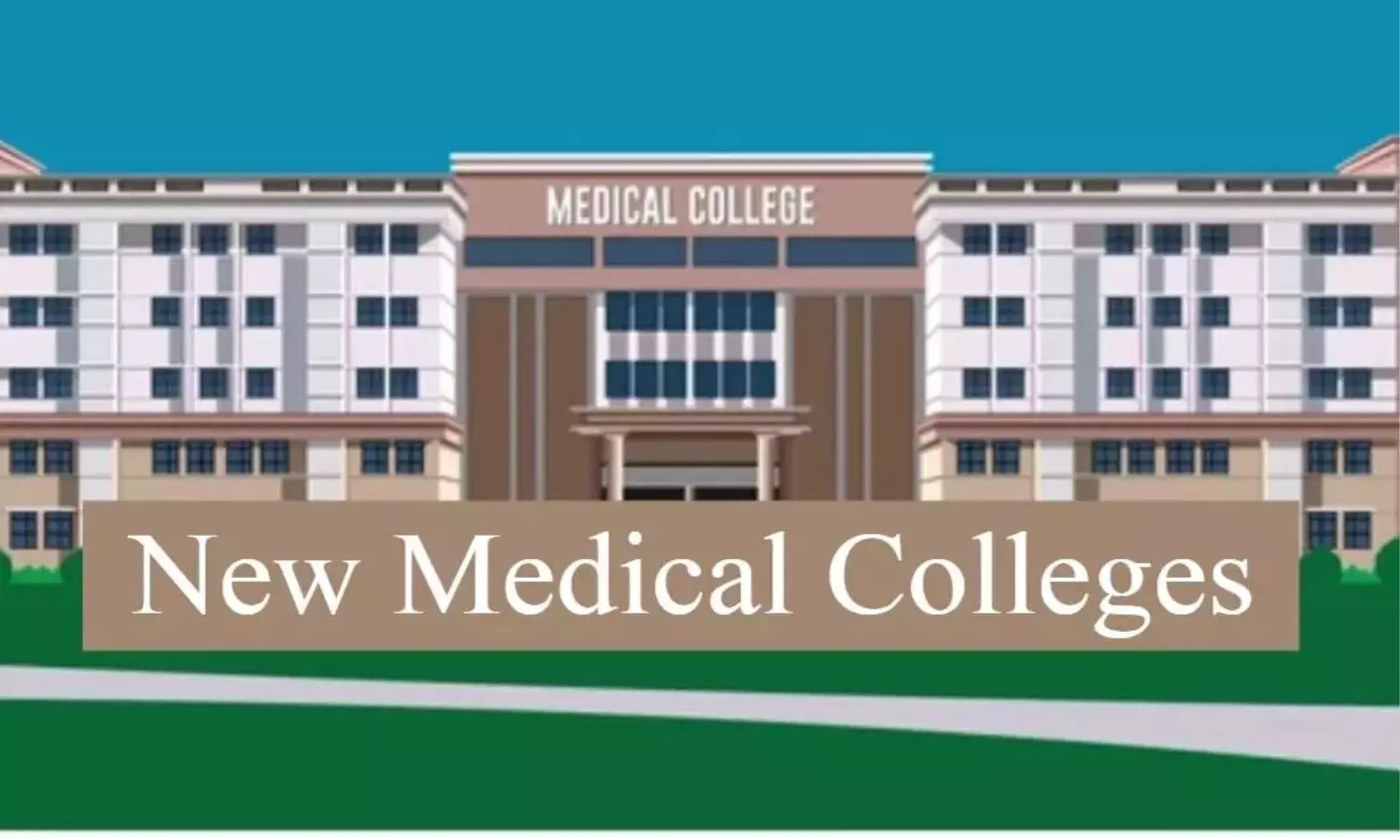
Maharashtra- The Maharashtra University of Health Sciences (MUHS), Nashik has recently released the Rules and Procedure for first-time affiliation to the colleges or Institutions or Higher learning, for the opening of new colleges, starting of post-graduate courses, increase in intake capacity of students for undergraduate and postgraduate courses by the university.
The regulations cover the various aspects of CONDITIONS AND PROCEDURES FOR GRANTING FIRST-TIME AFFILIATION by MUHS.
These are as follows:
1 The Management seeking permission for a new college or the institution of higher learning shall apply to the Registrar and shall give the undertaking. The University shall not consider the proposal for opening of new college or institution of higher learning unless it is provided in the perspective plan of the University.
2 After the expiry of the last date for receipt of the proposals, it shall be scrutinised by the Scrutiny Committee, appointed by the Vice-Chancellor, as per direction as an interim step and after due scrutiny the committee shall submit its report. to Planning Board.
3 The Planning Board shall consider such proposals along with the report of the Scrutiny Committee and thereafter shall make its recommendations to the Management Council.
4 The Planning Board while considering the application or proposal in the light of the perspective plan in making recommendations for opening of new college or institution of higher learning, starting new courses, additional faculties, new subjects and an increase in the intake capacity of students namely-
5 The Planning Board may recommend for the feasibility inspection of any Society or Trust seeking permission for a new college or the institution of higher learning in view of verification of any doubt regarding any facilities, infrastructure, including land and building of college or hospital, financial resources, etc. shown in the proposal.
6 After consideration of the recommendations of the Planning Board and the report of the feasibility committee, if any, by the Management Council, the decision of the Management Council shall be forwarded, with the application or proposal of the applicant, to the State Government within the time limit for issuing of No Objection Certificate (NOC) or State Government Resolution as applicable.
7 If the Essentiality Certificate/No Objection Certificate or Government Resolution
from the State Government is not received by the end of the respective Academic year, then the Management of the institution or college concerned shall apply to the University, with the prescribed fees for restoration of the proposal for next year.
8 On the lapse of restoration of the proposals for the period as prescribed by procedure, in the perspective plan, the Management concerned shall have to apply afresh with the prescribed fees and required documents.
9 On receipt of the NOC or Essentiality Certificate from the State Government, the University shall appoint a Local Inquiry Committee to inspect the mandatory requirements of the University as well as of the respective Central Council/Commission/ State Govt. / University. If major deficiencies are found in the LIC report shall be communicated to the College/ Institute.
10 The report of the Local Inquiry Committee shall be placed before the Academic Council for consideration and to take a decision about the issuance of Consent of Affiliation. After considering the report of the Local Inquiry Committee, the Academic Council shall decide whether the Consent of Affiliation should be granted or not, whether the Consent of Affiliation should be granted in respect of the whole or in part subjects, courses of study, the number of Students to be admitted and conditions, if any, which are prescribed in the norms of the respective Central Council/Commission 1 State Govt. / University.
11 The Registrar shall communicate the decision of the Academic Council in respect of granting such proposed affiliation to the Central Government, the respective Central CouncillCommission and the applicant institution or college. However, where there is no Central Council/Commission, the State Government if it deems fit, shall issue a Government Resolution for the final permission.
12 The Institutions or Colleges who have received the consent of affiliation for opening of new college or starting of new PG courses or increase in intake capacity of students but could not obtain permission from the Central Government within one year from the date of its issuance, shall apply for extension of the consent of affiliation, by paying requisite prescribed fee by the University, from time to time, fees till validity of Essentiality/No Objection Certificate or six years from the d rte of recommendation, as per the perspective plan.
13 On receipt of the permission of the Central Government/ Central Council/ Commission and State Government, the Academic Council of the University shall consider and decide to grant first-time affiliation to the new college or institution after an inquiry Made through the Local Inquiry Committee and the Academic Council shall also take into consideration the report of the said Committee and the extent to which the stipulated conditions in respect of the First Time Affiliation have been fulfilled by the college or the institution. The Academic Council may decide-
I Whether the proposed affiliation should be granted or rejected.
II Whether the proposed affiliation should be granted in whole or part.
III The proposed subjects, courses of study and the number of students to be admitted.
IV Conditions, if any, which may be stipulated, while granting such affiliation.
14 If the affiliation is granted, the Registrar shall communicate the decision of the Academic Council to the applicant Management, the State government, the Central Government, the respective Central Council/Commission and all the concerned authorities, along with the following details regarding-
I The subjects and course of study are approved for affiliation.
II Number of students to be admitted.
II The conditions, if any, are subject to the fulfilment of which the approval is granted.
15 If the affiliation is granted by the Academic Council, then, that College/ Institution shall obtain Continuation of Affiliation every year, from Academic Department by paying requisite fees prescribed by the University from time to time.
16 The university shall have the power to issue appropriate directives to the concerned college/institute in case of any dispute or discrepancy arising after granting of first-time affiliation by offering the opportunity of hearing to the concerned.
17 The university shall have the power to frame additional rules of procedures in this regard in conformity with the above-mentioned provisions.
18 The university shall have the power to amend, alter or repeal any provision of this direction, at any time, by sue-moto or on the recommendation of the appropriate authority of the university.
19 This direction shall remain in force until a statute is made on this behalf by the university and assented to by the Hon’ble Chancellor.
Lastly, it has been instructed that it should come into effect from the date of its issue.
To view the notice, click the link below
Powered by WPeMatico
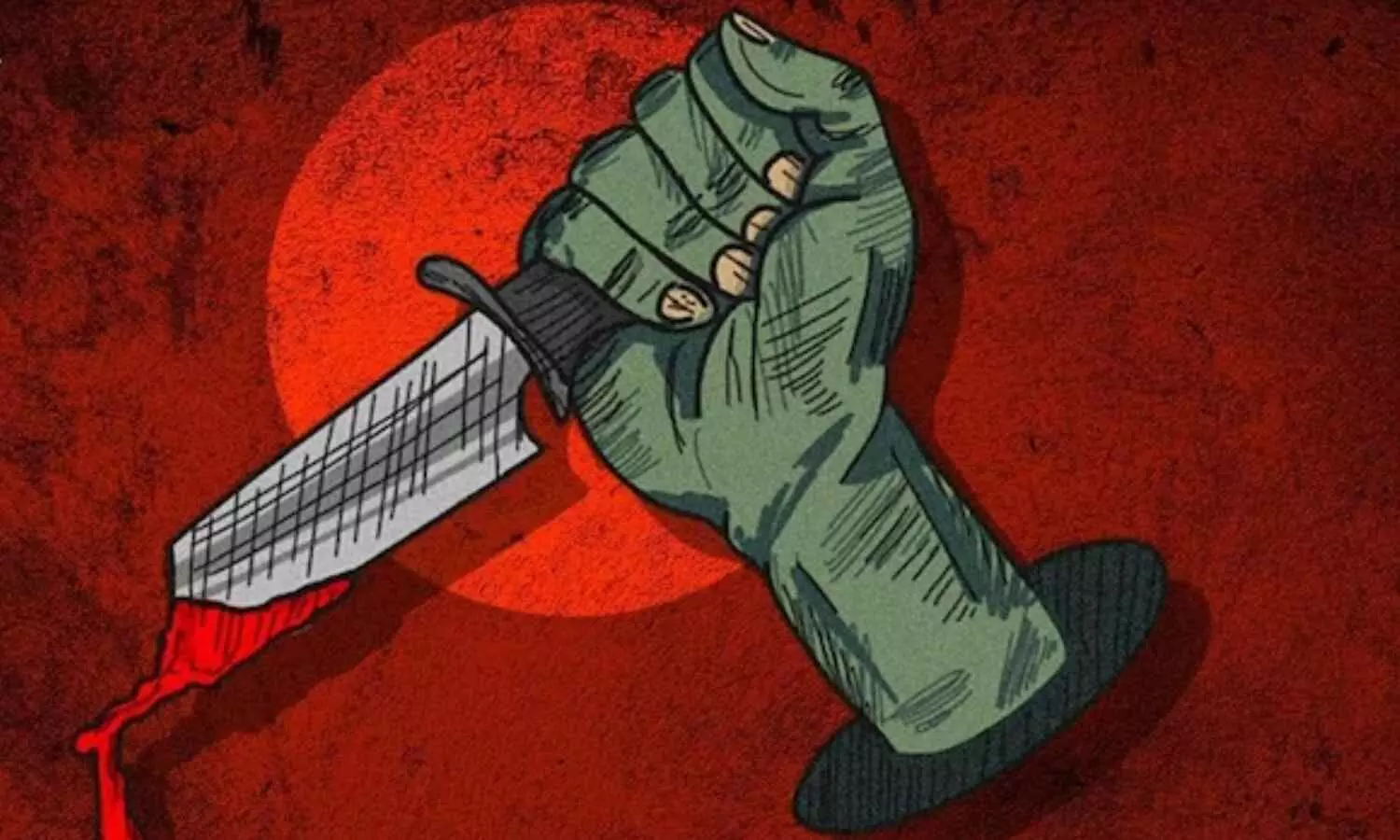
Kolkata: In a terrifying incident, an 84-year-old, retired army doctor and an eye surgeon from GC Block allegedly brutally killed his wife multiple times with a knife while he attempted to commit suicide as he was found lying unconscious at their Salt Lake residence in Kolkata on Wednesday morning.
The 70-year-old woman was found dead in her washroom with blood coming out profusely from her body and multiple sharp cuts and stab wounds. The accused doctor who is alleged to have committed the crime was also found with bleeding injuries from sharp cuts and burn injuries on his face and mouth.
The police suspect that the doctor might have been suffering from a severe mental ailment for 1 year and 8 months as he was receiving treatment during that period. Moreover, they found two suicide notes inside their house – one written in English and the other in Bengali.
Also read- First-Year Nursing Student Of Saifai Medical College Murdered, 3 Arrested
In the note, it was mentioned that the doctor wanted to kill his wife and commit suicide. Although the doctor tried to end his life, he survived and is currently being admitted to a private hospital.
However, the reason why he wanted to kill and commit suicide is unclear and communicated with the couple’s younger daughter and son-in-law to ascertain the motive.
According to the police, the doctor used to be tense about the future — an ‘anticipatory fear’ or even a form of schizophrenia that led to his family seeking medical help.
The incident came to light when their help entered the house through a back door that is usually left open for the maid or the conservancy staff. After entering the house, she went upstairs and found the main door open.
The maid then saw the doctor sitting next to the dining table with bleeding injuries and informed the couple’s neighbour, Rajesh Chirimar, the councillor of Ward 39 of the Bidhannagar Municipal Corporation.
After receiving the information, Rahesh went to the house. “He had burn injuries and sharp cuts on him. An acid bottle was lying nearby. He was still breathing. Kakima (the elderly woman) was nowhere to be seen. I searched all the rooms and then the washroom, where I found her. She was bleeding profusely. I called the ambulance,” he told Metro as reported by The Telegraph.
Following this, the police were informed and a preliminary investigation was conducted. An officer told The Daily, “The cause of death can be ascertained only after the post-mortem report comes. Several sharp objects like knives, a dan (a tool used to slice fish and vegetables in households) and a pair of scissors with blood stains were found strewn in the house. A few medicine pills and a bottle of acid were found, too. There are multiple possibilities (regarding the cause of death). We are waiting for the post-mortem report.”
The findings of a preliminary investigation suggest the injuries on the man were “self-inflicted” in nature. The officer said “It appeared the woman had resisted the attack on her. There are blood stains all over the house and the place appears disturbed. She must have resisted the attack and tried to save herself.”
“Family members said he often claimed he might face legal action or get arrested as the car he had sold could be used to commit a crime. He feared he might fail to pay IT returns on time. This sense of insecurity was unnerving for those around him. Whether this was enough to convince him to kill his wife, though, is still under investigation,” a TOI source said.
A case has been registered and an investigation is underway to unveil the mystery surrounding the woman’s death and the doctor’s attempted suicide or if any foul play was involved.
Also read- Dr Vandana Das Murder Case: Kerala HC Denies Bail To Accused, Dismisses Plea For CBI Probe
Powered by WPeMatico
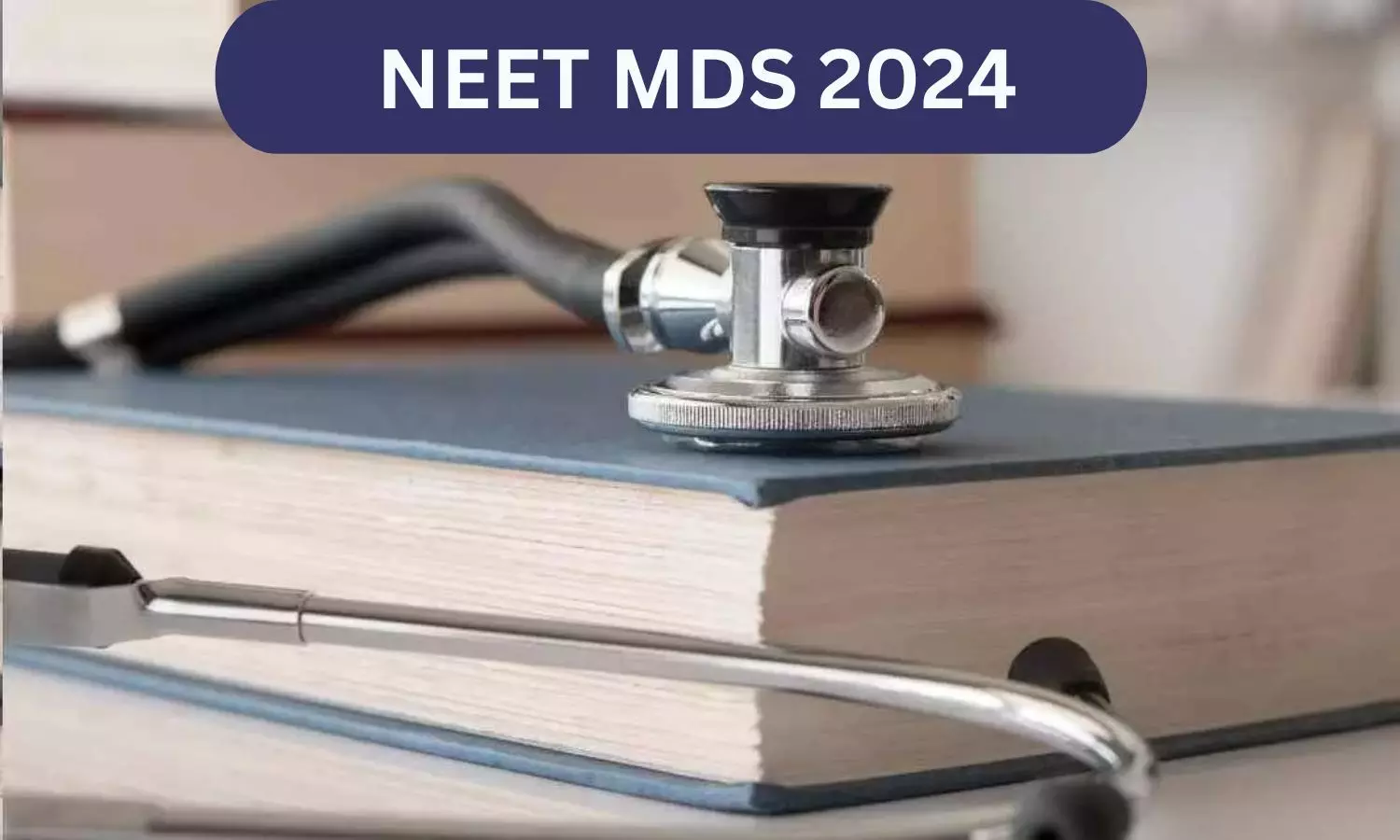
New Delhi- As per the official schedule of the National Board of Examination in Medical Sciences (NBEMS), the National Eligibility Cum Entrance Test For Master Of Dental Surgery (NEET MDS) 2024 result will be declared on April 18, 2024.
Candidates can check their NEET MDS Result 2024 through candidate login and download the result from the official website of NBE after the declaration of the result.
However, after downloading the NEET MDS 2024 result, candidates are advised to check and verify all the details mentioned on their marksheet. In case of any discrepancy with the details mentioned on the results or while downloading it, candidates are advised to report the same to NBE through proper channels. NEET MDS result will include roll number, marks obtained, NEET MDS 2024 rank and application ID.
STEPS TO CHECK THE RESULT
STEP-1- Visit the official website at natboard.edu.in.
STEP-2- Then, on the homepage, navigate for the ‘NEET MDS 2024 Result’ link.
STEP-3- Enter your login credentials.
STEP-4- NEET MDS 2024 Result will be displayed on your screen.
STEP-5- Check and verify all details mentioned in the result.
STEP-6- Download the result for your reference.
NEET-MDS is an eligibility-cum-ranking examination prescribed as a single entrance examination for admission to various MDS courses. No other entrance examination in the state or institution level will be valid for admission to MDS courses. Candidates have to qualify the NEET-MDS for admission to MDS courses under various universities/institutions in the country.
As per the official notice of NBE, candidates have to score the minimum cutoff to qualify the exam, although the qualifying marks differ for different categories. The NEET MDS cutoff percentile is 50 for General and EWS, 45 for UR PWD category candidates, and 40 for the SC. ST, OBC (including PWD of SC/ST/OBC) category candidates.
Along with the result, NBE will also release the NEET MDS cutoff marks and based on the cutoff marks a merit list will be released. Candidates included in the merit list will be eligible to participate in the counselling process for seat allotment.
NEET-MDS 2024 was conducted by the National Board of Examination in Medical Sciences (NBEMS) on March 18, 2024. The examination was conducted on a single day and in a single session through a computer-based platform at various examination centres across the country.
To check the NBE official notice, click the link below
Powered by WPeMatico
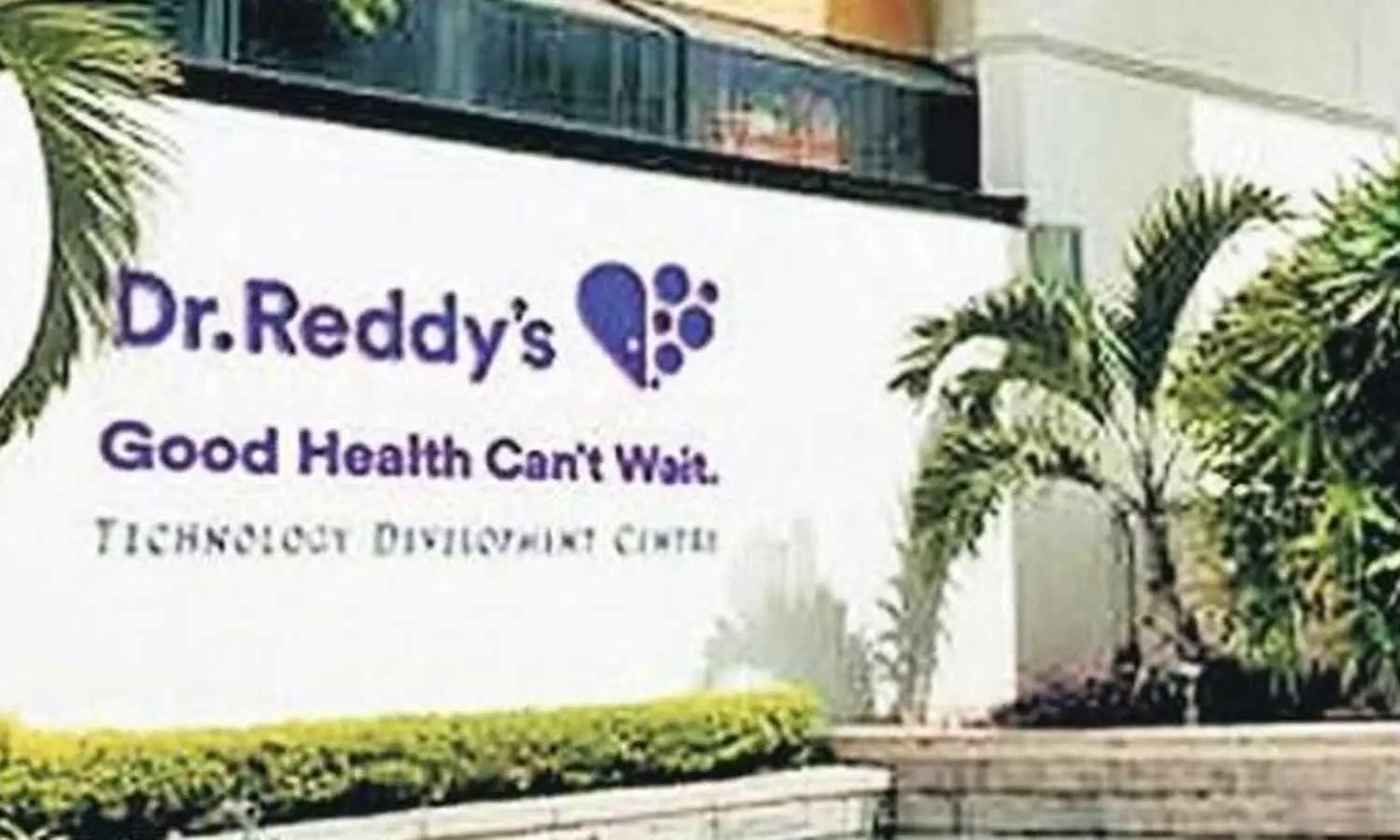
Hyderabad: Dr Reddy’s Laboratories Ltd., a global pharmaceutical
company, has announced that it has entered into an exclusive partnership with Sanofi Healthcare India
Private Limited (“SHIPL”) to promote and distribute their vaccine brands across private markets in
India.
About the portfolio:
|
Brand |
Label Indication |
|
Hexaxim |
Indicated for primary and booster vaccination of infants and toddlers |
|
Pentaxim |
Indicated for the active immunization of children against Diphtheria, |
|
Tetraxim |
Indicated in the joint prevention of diphtheria, tetanus, pertussis |
|
Menactra |
Indicated for active immunization to prevent invasive meningococcal |
|
FluQuadri |
FluQuadri is an inactivated quadrivalent influenza vaccine indicated |
|
Adacel |
Indicated for active booster immunization for the prevention of |
|
Avaxim 80U |
This vaccine is recommended for the prevention of the infection |
Powered by WPeMatico
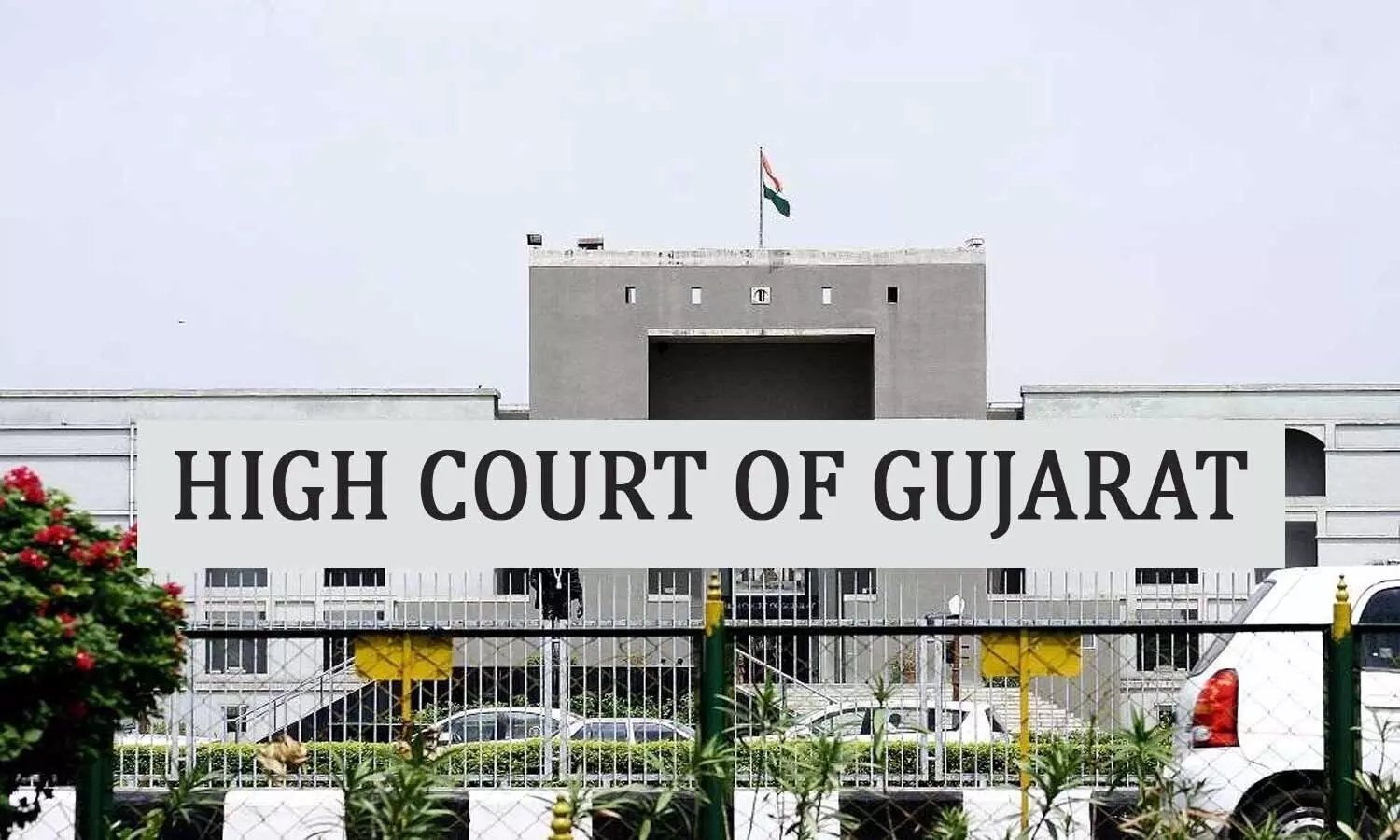
Ahmedabad: Having scored 613 out of 720 marks in the National Eligibility cum Entrance Test Undergraduate (NEET-UG) 2022, an MBBS student whose admission was cancelled due to inconsistencies in caste certificate, has been denied conversion of his seat from the reserved category to the general category by the Gujarat High Court recently.
Upholding the decision regarding the cancellation of his MBBS admission, the division bench of Chief Justice Sunita Agarwal and Justice Aniruddha P. Mayee said that he did not belong to the Socially and Economically Backward Class (SEBC) in the State of Gujarat and the conversion of his to general category could not take place as he had applied admission based on the reserved category.
“Once this certificate is cancelled, your admission goes automatically. No one can save your admission. Sympathy is not a ground to save admission in this kind of case. There is no question of considering you in the open category. Once someone has claimed the benefit of reservation, he has to stand by that.” observed the bench.
During the hearing, the bench also asked “Why would you go to get this certificate when you knew that you do not belong to the caste in the State of Gujarat.”
According to Bar and Bench reports, the order was issued on Tuesday, two months after a single judge decided to reinstate the student’s admission, considering his family background and commending his accomplishments. This decision was challenged by the Admission Committee For Professional Medical Educational Courses.
Earlier, the student approached the High Court with a request to direct authorities to convert his seat to the general category as he was denied admission based on his reserve category certificate.
The student scored 613 marks out of 720 with a merit rank of 600 in the NEET UG-examination 2022 in the General category and a merit rank of 154 in the SEBC category. He was eligible for admission to all 39 medical and 12 dental colleges, except three colleges, including the one where he was studying, as reported by Ahmedabad Mirror.
Observing that he had got an admission based on a certificate that could not have been issued, the division bench suggested that the student could have competed in Uttar Pradesh to get admission under the reserved category since he could not get admission in Gujarat with Other Backward Class category.
“You cannot get benefit [of reservation] in the State of Gujarat. Go back to the State of UP. You will get benefit over there. You compete in State of UP.”
In this case, the student is the son of a pani puri vendor from Meghraj in Aravalli district, who got admission to the Vadodara government medical college under the Socially and Economically Backward Classes (SEBC) category based on the caste certificate issued in 2018. He was born in Uttar Pradesh but did his schooling in Gujarat.
After his admission, when the state admission committee sent his caste documents for verification, the developing caste welfare department found his caste, mentioned as Teli, does not fall under the SEBC category in Gujarat. Following this, the Admission Committee for Professional Undergraduate and Postgraduate Medical Educational Courses (ACPUGMEC, ACPPGMEC) cancelled Rathod’s admission.
On September 1, 2023, his admission was cancelled due to the rejection of the caste certificate he had submitted to the college by both the state government and the state admission committee.
Following this, he challenged the cancellation of admission before the High Court.
Justice Nikhil S Kariel in a ruling on January 29 allowed his petition and said the cancellation of admission after the admission process being over with no possibility of the vacancy being filled in by an eligible candidate would result in the seat going vacant.
“Since seats in all colleges where the petitioner could have got admission are filled in and since the admission process is long over, the petitioner in spite of scoring very high marks in the NEET (UG-2022) entrance exam would not get admission in MBBS Course,” the judge had said.
Taking note of the financial condition of the candidate’s family, the single-bench judge decided to exercise extraordinary jurisdiction in the case.
“That a son of a person who is engaged in selling Panipuris having reached the stage of admission to an MBBS course on merits is in itself a commendable feat and whereas further considering this aspect from the view point of the fact that the marks secured by the petitioner were so much sufficient that except for three colleges who had been entitled to admission in all other colleges in the State of Gujarat, clearly point out to the fact that the extraordinary jurisdiction of this Court is required to be exercised in favour of the petitioner to ensure that he has a chance to complete his MBBS Course which seat otherwise would remain vacant for the entire term.”
Refuting the single bench decision, the division bench said the student would have been eligible for being considered for admission in the open category in a majority of the medical colleges but there was no doubt he had got admission to the specific college where he was not allowed to apply based on a certificate.
“The decision to save admission of the petitioner merely by the fact that he has attained high marks in the NEET examination and could have secured admission in the open category in any of the colleges in the State of Gujarat cannot be a reason to secure his admission in the college concerned,” the Court opined.
The Court also said no fault can be attributed either to the Admission Committee or any authority of the college concerned. “The place which the respondent/original petitioner has secured in the medical college has resulted in denying the opportunity of securing admission to an otherwise eligible candidate belonging to the SEBC category in the State of Gujarat,” it added.
Noting that none of the student’s family members had an SEBC certificate in Gujarat, the court said “The caste comes from parents. You are born in a caste. You don’t acquire caste otherwise. If your parents did not have an SEBC certificate in Gujarat, you could not have got it.”
Powered by WPeMatico
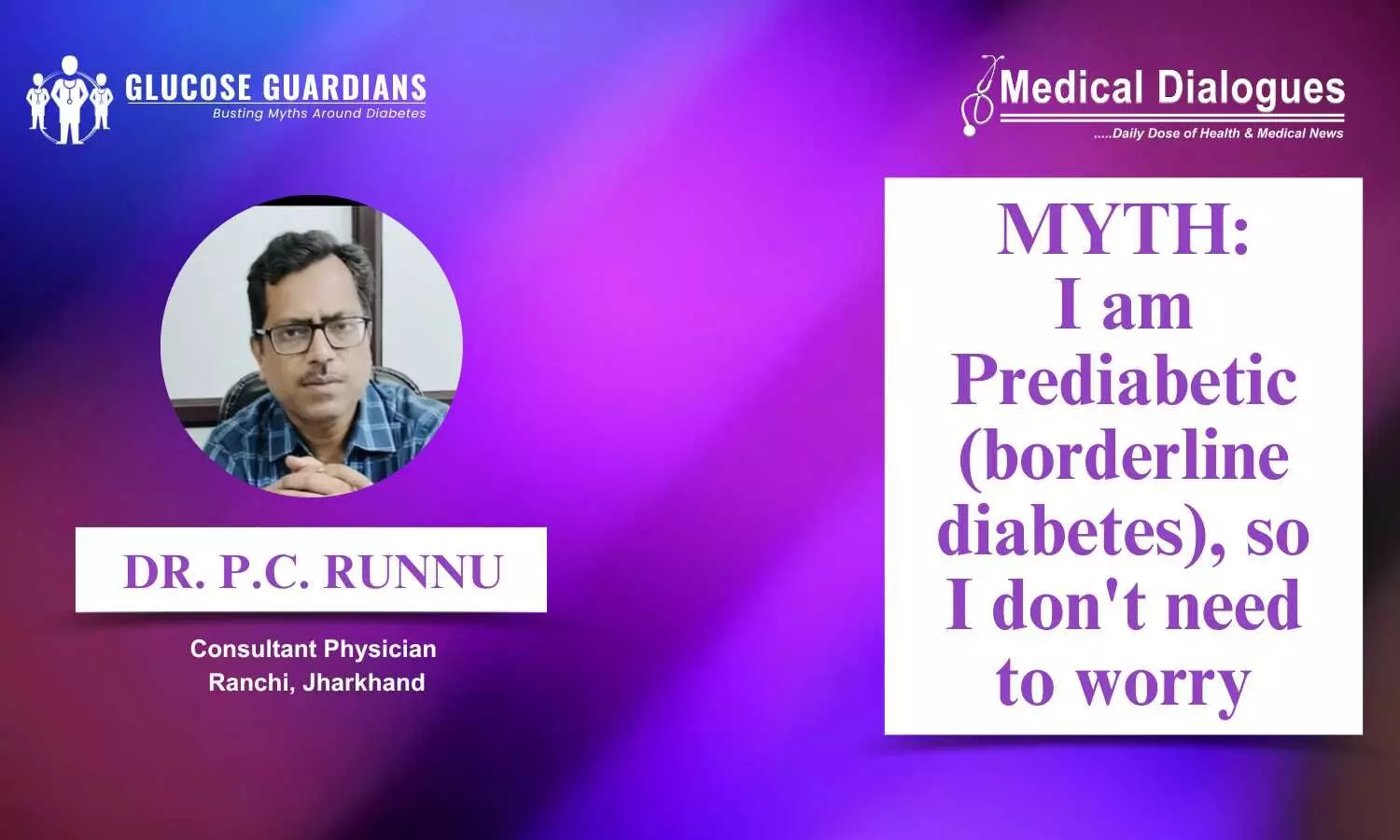
Diabetes, often known as blood sugar, is a chronic illness marked by elevated blood glucose levels. It happens when the body is unable to use the insulin that is produced, or is unable to create enough of it. The hormone insulin controls blood sugar levels and permits it to enter cells for cellular energy production. When insulin isn’t working properly, blood glucose levels rise and cause a number of health issues.
Even though having prediabetes, another name for borderline diabetes, may not appear as serious as being diagnosed with diabetes, it still needs to be monitored closely and managed proactively. Blood sugar levels that are higher than normal but not high enough to be classified as diabetes are called prediabetes. Nonetheless, prediabetes can eventually turn into type 2 diabetes if lifestyle modifications and treatments are not implemented. It’s important to understand that having borderline diabetes increases the likelihood of getting diabetes and its associated health consequences, even in people who do not yet have the disease.
Dispelling some of the common misconceptions related to diabetes, Dr. P.C. Runnu from Ranchi, Jharkhand, addresses questions about what diabetes is and why we need to worry about it. Additionally, he sheds light on the misconception that having borderline diabetes means one doesn’t need to worry.
Powered by WPeMatico
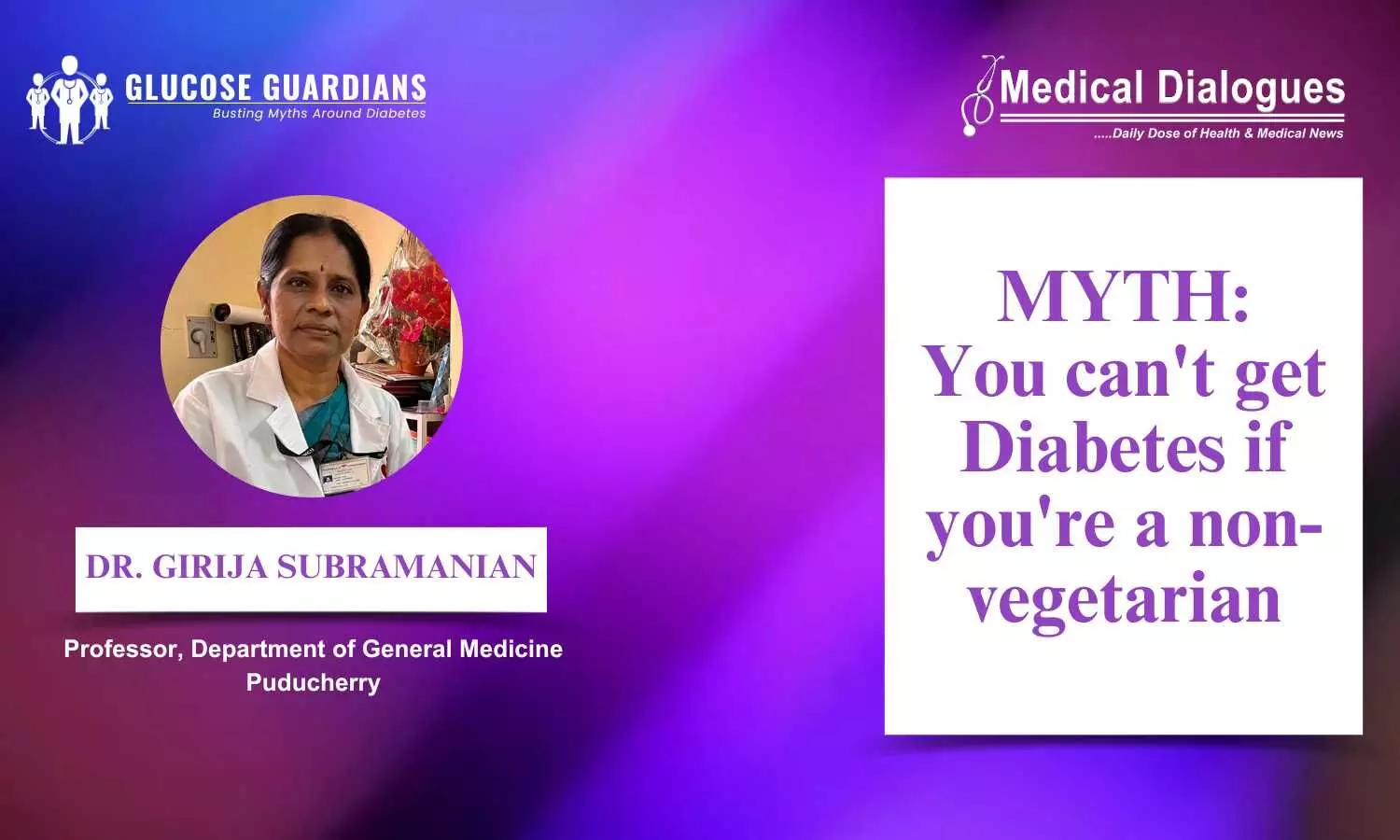
For those with diabetes, keeping HbA1c values below 7% is essential because it indicates improved long-term blood sugar control and lowers the risk of consequences from the condition, including kidney disease, nerve damage, eye issues, and cardiovascular disease. High HbA1c results on a regular basis are indicative of poorly controlled diabetes, which over time can cause major health problems. People with diabetes can reduce their risk of problems and live better lives by aiming to maintain a HbA1c below 7%.
It’s a common misconception that those who eat non-vegetarian food are immune to diabetes. Regardless of dietary habits, anyone can get diabetes. Diabetes is largely determined by genetics, lifestyle variables, and general health, even while particular dietary patterns, such as consuming an excessive amount of sugary or processed foods, may increase one’s chance of getting the condition. Hence, regardless of dietary choices, it’s critical to concentrate on keeping a balanced diet, regular physical exercise, and routine health check-ups to control and avoid diabetes.
Addressing common myths about diabetes, Dr Girija Subramanian from Sri Manakula Vinayagar Medical College, Pondicherry, explains the misconception that being a non-vegetarian prevents one from developing diabetes.
Powered by WPeMatico
